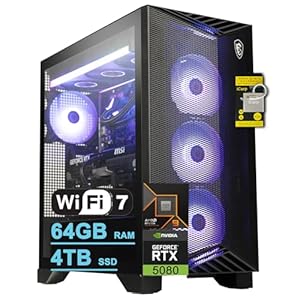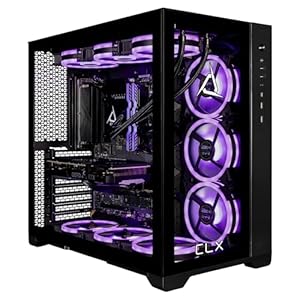
When deciding between water cooling and air cooling for your gaming PC, you’ll need to weigh the pros and cons carefully. Water cooling offers unparalleled thermal performance and a quieter operation, but it comes with a higher price tag and more upkeep. On the other hand, air cooling is a more budget-friendly option with simpler maintenance requirements. Both have their merits, so which one will better suit your gaming needs?
Performance Comparison
When choosing a cooling option for your gaming PC, comparing the performance of different solutions is crucial. Water cooling systems are known for their exceptional heat dissipation capabilities. By utilizing water blocks, radiators, and pumps, water cooling can efficiently transfer heat away from your components, allowing for optimal performance during intense gaming sessions.
On the other hand, air cooling solutions, such as heatsinks and fans, are more budget-friendly and easier to install. While they may not offer the same level of cooling efficiency as water cooling, air coolers can still effectively dissipate heat and maintain stable temperatures for your CPU and GPU.
Performance-wise, water cooling tends to outperform air cooling in terms of thermal dissipation, especially under heavy workloads. Water cooling systems excel in keeping temperatures low, which can result in better overall performance and longer component lifespan.
However, air cooling remains a reliable choice for those looking for a simpler setup without compromising too much on cooling effectiveness.
Noise Levels
For optimal gaming PC performance, considering noise levels is essential when selecting a cooling solution. Noise can be a significant factor in your overall gaming experience.
Air coolers tend to be noisier than water coolers due to the fans needed to circulate air. The noise level of an air cooler can vary based on the quality of the fan and the speed at which it operates.
On the other hand, water coolers are generally quieter because they rely on water pumps, which produce less noise compared to fans. If noise is a concern for you while gaming, opting for a water cooling system might be the better choice.
However, do keep in mind that some high-performance water coolers can still produce a noticeable hum. When deciding between air and water cooling, take into account the noise levels of each system to ensure a quieter and more enjoyable gaming experience.
Maintenance Requirements
Considering the maintenance requirements is crucial in determining the most suitable cooling solution for your gaming PC setup. When it comes to air cooling, the maintenance is generally straightforward. You’ll need to regularly clean the fans and heatsinks to prevent dust buildup, which can impact cooling efficiency. This can be done using compressed air or a soft brush to gently remove any accumulated dust. Additionally, checking and replacing thermal paste between the CPU and the cooler may be necessary over time to ensure optimal heat transfer.
On the other hand, water cooling systems require a bit more maintenance. You’ll need to monitor the coolant levels to prevent any leaks or evaporation, as well as regularly clean the water blocks and radiators to avoid clogs that can hinder performance. It’s also essential to check for any potential leaks in the tubing or fittings and address them promptly to prevent damage to your components. Overall, while water cooling may offer better cooling performance, it does require more attention and care to keep your system running smoothly.
Cost Analysis
To evaluate the most cost-effective cooling option for your gaming PC, it’s essential to consider both upfront expenses and long-term maintenance costs. When comparing water cooling and air cooling, the initial cost outlay for air cooling is generally lower. Air coolers are simpler in design and installation, making them more budget-friendly upfront. On the other hand, water cooling systems, while more expensive initially, can provide better thermal performance, potentially extending the lifespan of your components.
In terms of long-term maintenance costs, air coolers are typically more cost-effective. They require minimal upkeep, usually limited to occasional cleaning of dust buildup on the heatsinks and fans. Water cooling systems, however, need more attention and maintenance. The periodic need to check for leaks, replace coolant, and ensure pump functionality adds to the long-term costs associated with water cooling.
Considering both upfront expenses and long-term maintenance, air cooling is often the more economical choice for budget-conscious gamers. However, if you prioritize superior cooling performance and are willing to invest more upfront and in maintenance, water cooling could be the way to go.
Trending Products














